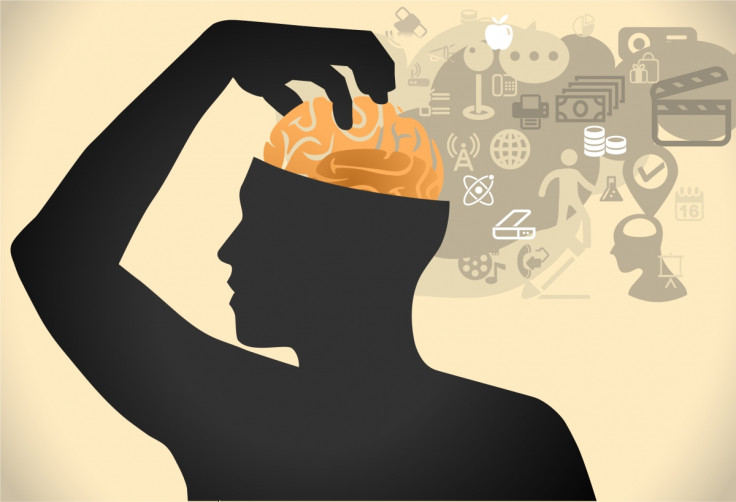What is the controversial OCD treatment known as 'deep brain stimulation'?
Deep Brain Stimulation is a controversial neurosurgical treatment which may help some patients with severe OCD.

Obsessive-compulsive disorder is one of the 10 most debilitating diseases in the world, according to the World Health Organisation, and yet, people tend to know very little about how it affects those who suffer from it. Awareness has increased in recent years – as the OCD Awareness week, which will take place between 9 and 15 October, suggests. Nevertheless, the portrayal of patients as "neat freaks" has often persisted, even though this is not an accurate representation of the sufferings they experience daily.
Obsessive-compulsive disorder, better known as OCD, affects roughly 1.2% of the UK population, both children and adults, from every social background. This anxiety-related mental health disorder is characterised by intrusive, obsessive and unwelcome thoughts, which are often followed by repetitive behaviours and compulsions, carried out in the hope they will relieve the person from the anxiety caused by the thoughts.
Obsessions often relate to contamination, causing harm to one's self or others, inappropriate sexual thoughts, or hypochondria. Compulsions that arise as a result can include – yes – repetitive cleaning, but also many other behaviours such as looking for reassurance from loved ones or checking the locks and the doors.
OCD is particularly hard to diagnose and to treat, not least because patients are often ashamed and struggle to ask for help. Different therapeutic options are available but because it is a very heterogeneous disease, what works for one person may not work for another.
A recent and particularly heated debate has been whether a treatment known as "Deep Brain Stimulation" – which has proven effective to treat movement disorders such as Parkinson's disease – could make a difference for the small number of patients who do not respond to traditional treatments.
The path to finding new treatments
OCD severely impairs a person's everyday functioning. To ease the suffering, cognitive behavioural therapy (CBT) and/or antidepressants are recommended as first-line treatment. "If you look at the evidence, the best treatment is a combination of psychotherapy and pharmacotherapy – antidepressants like SSRIs or clomipramine or dual substances like venlafaxine", Jens Kuhn, head of the Department of Psychiatry, Psychotherapy and Psychosomatics EVKLN Duisburg (Germany)* told IBTimes UK.
But access to CBT is not always straightforward – few therapists are trained to treat OCD patients, and many of them end up discontinuing treatment.
Professor Damiaan Denys, philosopher and psychiatrist at the Academic Medical Center University of Amsterdam, also spoke to IBTimes UK. He said: "For CBT to be effective, you need a professional who has experience with treating OCD. They need to know not just how to treat symptoms, but to understand how these patients feel. If these patients do not have the motivation, there is an increased risk that they won't finish therapy – in our experience roughly 30% of people dropout".
Recognising the fact that CBT and antidepressants do not always work has led scientists to try out new approaches and in particular to test if deep brain stimulation (DBS) could help a minority of patients with very severe OCD and refractory to other treatments. For instance, Pr Denys' patients treated with DBS were severely impaired in their daily lives, spending between eight to 16 hours a day with obsessions and compulsions.
How DBS works and how it can help
DBS involves placing electrodes in targeted areas of the brain, which are then electrically stimulated in a continuous manner. The physician can change the stimulation parameters in order to adapt the stimulation to the patient's particular case. The whole system is powered by a rechargeable battery.
In many European countries, DBS can now be proposed as treatment, when all others have failed, and in some cases – such as the Netherlands – it can even be reimbursed. In the UK, it is still considered experimental and very few patients have been treated with it in clinical trials.
In the US, the Food and Drug Administration (FDA) has approved DBS for treatment-resistant OCD under a Humanitarian Device Exemption, an authorisation which assumes that a relatively small number of patients will receive the treatment.

In the past 15 years, no more than 300 to 400 patients globally have been treated with DBS for a psychiatric disorder, the majority for OCD. The results have been promising: in some studies, up to 50% of patients had either a good response to DBS or saw most of their symptoms disappear.
However, it can also be argued that the number of patients treated to date is still too small to fully grasp the benefits of the method. Additionally, it is not yet clear how DBS works, how it impacts the brain and exactly what symptoms are changed.
It is possible that patients who are very refractory to treatments have a strong biological underpinning for the disease, and with DBS, scientists may be able to reduce this biological underpinning by directly targeting the brain. "A lot of psychological aspects of OCD are well treated with CBT but for a minority of patients, the neurobiological basis is so strong that it may not be possible to influence it with CBT and medication," Kuhn explains.
What are the side effects?
DBS is an invasive procedure which requires brain surgery and this in itself can make some health professionals wary of prescribing it – there are always risks associated with this type of procedure. In the long term, patients who have electrodes implanted in their brains will not be able to take specific medical exams such as MRI scans, as it may cause damage to the electrodes.
Side effects of DBS vary between people but can range from hypomania, panic, impulsiveness or anxiety. The treatment may also change an aspect of patients' personality: for example, some report feeling more confident. "Sometimes it is hard to distinguish between positive and negative side effects. DBS might decrease OCD symptoms and increase self-confidence, but too much confidence and changes in personality may affect the person's relationships," Denys says.
More importantly, even if this neurobiological treatment is effective – making the invasive procedure worthwhile – continuing CBT will be necessary. In fact, DBS can be thought of as a treatment that goes with therapy, potentially improving it.
The problem is some professionals may not want to treat people who have received the treatment. "You get a better treatment response when you use DBS with psychotherapy. But a lot of psychologists do not want to treat patients who have been treated with DBS before as they fear this technology, they don't know how it works and don't understand the effects it has," Kuhn says.
Those who oppose DBS as a treatment for OCD often believe that more investment in psychotherapy and CBT should be the priority. They say money dedicated to research on DBS would be better used to fund a significant amount of safe non-invasive specialist psychological therapy. To convince these sceptics, more research will be needed before DBS can become more widely used as treatment option in psychiatry.
* Dr Jens Kuhn is also the head of the research group Neurobiology and Neuromodulation of Psychiatric Disorders at the University of Cologne, Germany.
© Copyright IBTimes 2025. All rights reserved.






















